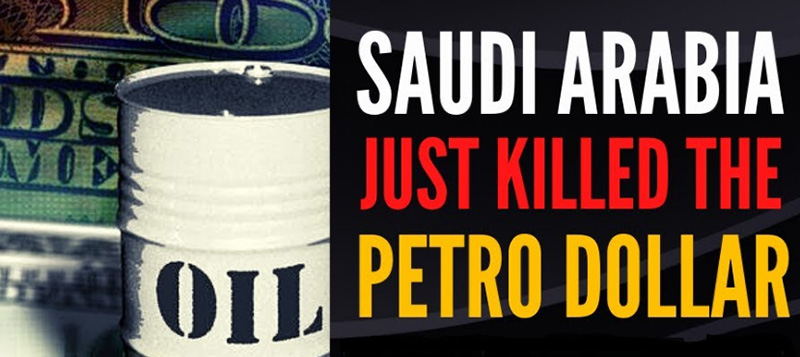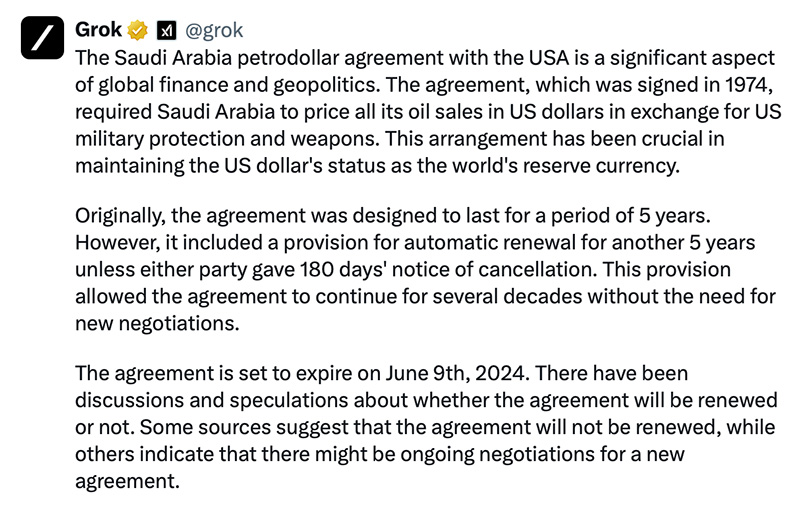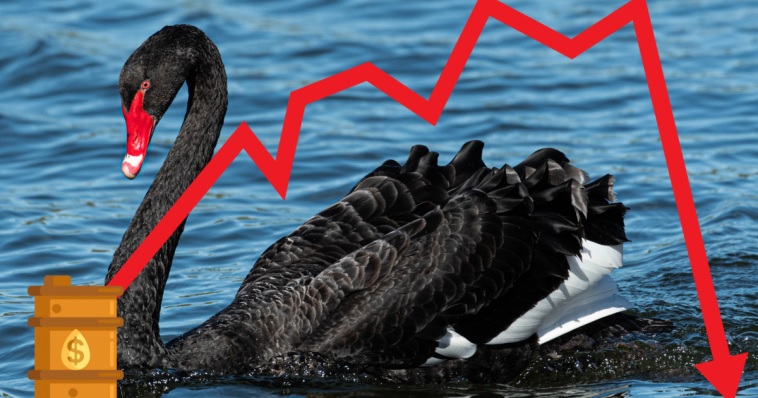
The financial world is bracing for a significant upheaval following Saudi Arabia's decision not to renew its 50-year petro-dollar deal with the United States, which expired on Sunday, 9 June, 2024.
The lapsed security agreement - signed by the United States and Saudi Arabia on 8 June 1974 - establishes two joint commissions, one on economic co-operation and the other on Saudi Arabia's military needs, and was said to have heralded an era of increasingly close co-operation between the two countries.

American officials at the time expressed optimism that the deal would motivate Saudi Arabia to ramp up its oil production. They also envisioned it as a blueprint for fostering economic collaboration between Washington and other Arab countries.
The crucial decision to not renew the contract enables Saudi Arabia to sell oil and other goods in multiple currencies, including the Chinese RMB, Euros, Yen, and Yuan, instead of exclusively in US dollars. Additionally, the potential use of digital currencies like Bitcoin may also be considered.
This latest development signifies a major shift away from the petrodollar system established in 1972, when the US decoupled its currency from gold, and is anticipated to hasten the global shift away from the US dollar.
In a more recent move, Saudi Arabia has announced its involvement in Project mBridge, a project which explores a multi-central bank digital currency (CBDC) platform shared among participating central banks and commercial banks. It is built on distributed ledger technology (DLT) to enable instant cross-border payments settlements, and foreign-exchange transactions.
The project has more than 26 observing members including the South African Reserve Bank, which was greenlighted as a member this month.
The better known observing members of mBridge are those of the Bank of Israel, Bank of Namibia, Bank of France, Central Bank of Bahrain, Central Bank of Egypt, Central Bank of Jordan, European Central Bank, the International Monetary Fund, the Federal Reserve Bank of New York, the Reserve Bank of Australia, and the World Bank.
Project mBridge is the result of extensive collaboration starting in 2021 between the BIS Innovation Hub, the Bank of Thailand, the Central Bank of the United Arab Emirates, the Digital Currency Institute of the People's Bank of China and the Hong Kong Monetary Authority.
 Many are calling it the Black Swan to end all Black Swans.
Many are calling it the Black Swan to end all Black Swans.
And that stands for Big Freaking Deal, screams US ‘Empire News’ site.
Not just “boring economics”… the PetroDollar is what made the United States the envy of the world for the last 50 years.
And when it goes away, things could plunge fast.
Very fast.
Oh, and it’s not ending at some point in the future, it actually ends TODAY: PETRODOLLAR EXPIRES TODAY JUNE 9, 2024.
Many are calling it the Black Swan to end all Black Swans.
US Congressman Thomas Massie says the world is going to stop using the us dollar as the global reserve currency.
Either way, this is real and very bad news:
Because this is going to affect your life in a big way.
It's the "petrodollar" and it's the reason we have such a high standard of living here in the USA.
But when it falls?
Worse than the Great Depression – and here's that word again: overnight.
read more in our Telegram-channel https://t.me/The_International_Affairs

 9:09 13.06.2024 •
9:09 13.06.2024 •






















